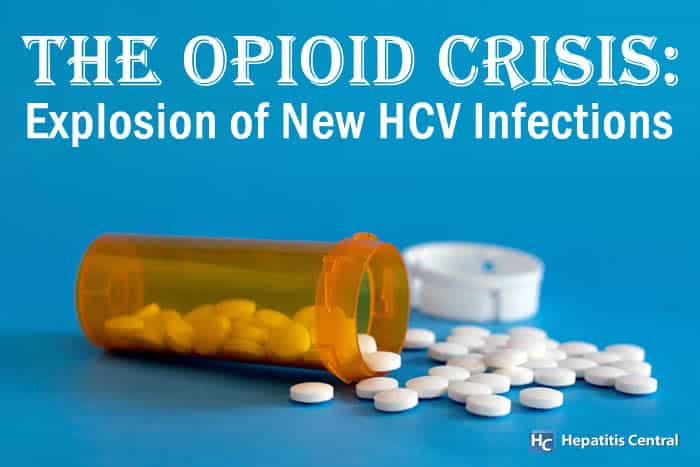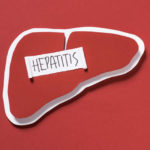The Opioid Crisis: Explosion of New HCV Infections


Stories about the opioid crisis are making the news with an increasing frequency; evidence that this problem is continually worsening. The opioid crisis describes the misuse of and addiction to opioids—including prescription pain relievers, synthetic opioids (like fentanyl), and heroin.
Besides the potential for overdose and other direct health consequences of opioid use, the intravenous administration of heroin is a major contributor to the resurgence of Hepatitis C.
Opioids are valuable medications prescribed in many situations, including pain management and major surgeries. If a person crosses over from using Percocet (a legally prescribed opioid) for occasional pain relief to heroin (a stronger and cheaper opioid) – major health risks lurk.
Opioids Are Highly Addictive
Unfortunately, people who are prescribed opioids are vulnerable to substantial risks if they become physically addicted…and opioids are highly addictive:
- Approximately 21 to 29 percent of people prescribed opioids for chronic pain misuse them.
- An estimated 4 to 6 percent of people who misuse prescription opioids transition to heroin.
- About 80 percent of people who use heroin first misused prescription opioids.
- Opioid overdoses increased 30 percent from July 2016 to September 2017 in 45 states.
- Opioid overdoses increased 70 percent from July 2016 to September 2017 in the Midwest.
- According to the U.S. Department of Health and Human Services, 116 people die daily from opioid-related drug overdoses.
While there is no doubt that the opioid crisis is one of today’s biggest public health challenges, the evolution of opioid addiction to intravenous drug use is especially harrowing. Research from the Centers for Disease Control and Prevention (CDC) suggests that the recent increase in cases of acute Hepatitis C infection is associated with the rise in opioid injection. According to Jonathan Mermin, MD, MPH, director of the CDC’s National Center for HIV/AIDS, Viral Hepatitis, STD, and TB Prevention, “Hepatitis C is a deadly, common, and often invisible result of America’s opioid crisis.”
The Hepatitis C virus is spread through infected blood, which can contain high levels of the virus in a single drop. Due to its high infectivity in just a drop of blood, the sharing of needles and injection equipment among intravenous drug users is creating a wave of new Hepatitis C infections. Until recently, Hepatitis C mostly affected the baby boomer generation, but the opioid crisis has led to an explosion of new Hepatitis C viral infections in younger people. Upon looking at the numbers, experts recognize that those with an opioid addiction should be aware of how common Hepatitis C is in intravenous drug users.
Untreated, Hepatitis C can lead to advanced liver disease, which may cause severe illness. Hepatitis C medications used to be grueling, riddled with severe side effects and not very effective, dissuading many from getting treatment. However, the past few years have seen tremendous progress in Hepatitis C therapy – with minimal side effects and a treatment success rate in the high 90th percentile. This virus is becoming easier to conquer because of Hepatitis C treatment improvements.
Hepatitis C is a virus that continually attacks liver cells; typically leaving injured liver tissue in its wake. Eliminating the virus stops the process of liver injury, but damage may already have occurred. For this reason, protecting your liver from inflammation from any source helps preserve liver function – whether the virus still exists or not. According to liver health experts, the best way to protect your liver from inflammation is with milk thistle supplementation. This herb has the ability to deflect harm by reducing liver cell inflammation and strengthening liver cell walls.
If You Have an Opioid Addiction
Without passing any judgment, individuals who have been affected by an opioid addiction to the point of intravenous drug use are urged to:
- Get tested for Hepatitis C. Even if heroin was used just once, the chances of Hepatitis C exposure are great.
- If testing for Hepatitis C is positive, do whatever is necessary to get treated. Swift treatment frequently has a favorable outcome.
- Supplement with milk thistle to protect your liver from previous or ongoing harm.
The opioid crisis impacts people from all walks of life, and can open up a rabbit hole that many unsuspecting people fall into. If opioid addiction leads to intravenous drug use, liver damage from Hepatitis C is highly likely. Thus, anyone who finds themselves in this predicament are urged to get tested, and take the steps necessary (Hepatitis C medications and milk thistle) to reclaim your liver and stop the cascade of illness caused by opioid addiction.
Hohmann, P. (2018, February 5). The origin and progression of the opioid crisis. Retrieved November 7, 2019, from https://oceanbreezerecovery.org/blog/opioid-timeline
Increase in hepatitis C infections linked to worsening opioid epidemic. (2017, December 21). Retrieved November 7, 2019, from https://www.cdc.gov/nchhstp/newsroom/2017/hepatitis-c-and-opioid-injection-press-release.html
Liang, T., MD, & Ward, J. W., MD. (2018, March 29). Hepatitis C in injection-drug users - a hidden danger of the Opioid EPIDEMIC: NEJM. Retrieved November 07, 2019, from https://www.nejm.org/doi/full/10.1056/NEJMp1716871
Opioid crisis. (2019, June). Retrieved November 07, 2019, from https://www.hrsa.gov/opioids
Opioid overdose crisis. (2019, January 22). Retrieved November 07, 2019, from https://www.drugabuse.gov/drugs-abuse/opioids/opioid-overdose-crisis







